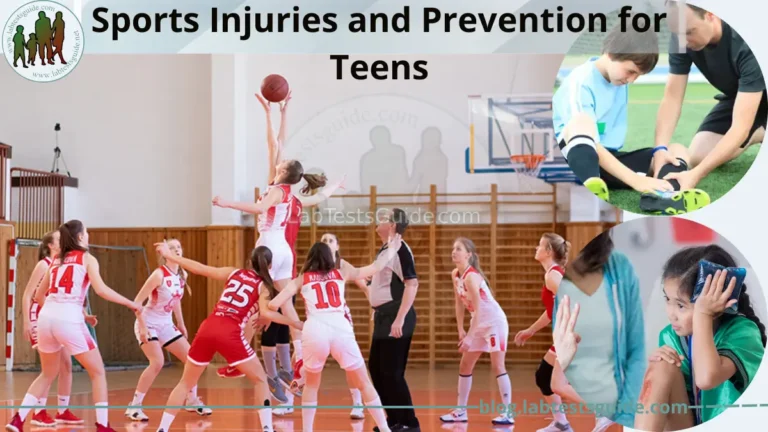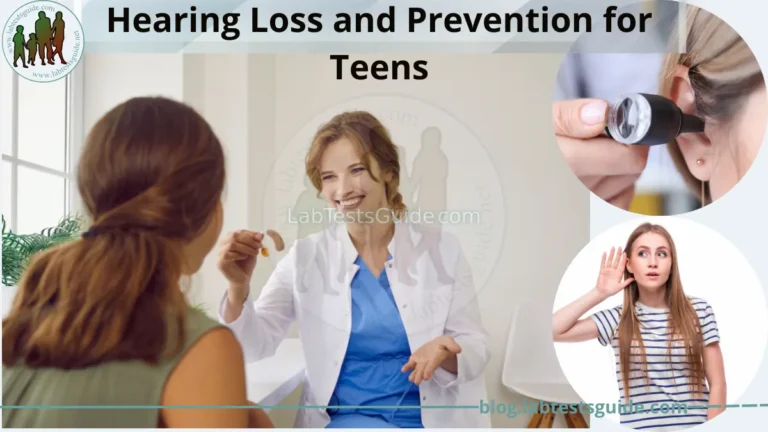Psychiatric medications for teens are medications prescribed by healthcare professionals to treat mental health issues such as depression, anxiety, bipolar disorder, and ADHD in adolescents. These medications can help alleviate symptoms, improve mood and behavior, and increase functioning.

Psychiatric problems are a major concern for adolescents and young adults, as they can have a profound impact on their social, academic, and emotional development. The teen years can be a time of great stress and transition, and many teens struggle with mental health issues during this time. It is essential to recognize the warning signs of psychiatric disorders and seek professional help to address them.
Importance of addressing mental health in this age group
Addressing mental health in adolescents is of paramount importance, as it can have a significant impact on their general well-being, social functioning, and academic performance. Adolescence is a critical period of development, marked by rapid physical, emotional, and cognitive changes. Stressors associated with this stage of development can exacerbate the risk of developing mental health problems. Research shows that up to one in five adolescents experience a major mental health problem during adolescence, and half of all mental illnesses develop before the age of 14.
Untreated mental health problems in adolescents can have serious consequences, including increased risk of suicide, substance abuse, academic problems, and difficulties with interpersonal relationships. Addressing mental health issues early on can prevent these negative outcomes and promote better long-term outcomes.
Furthermore, untreated mental health problems in adolescents can also have significant financial and social costs, including increased health care costs, reduced productivity, and increased risk of criminal activity. Early intervention, prevention and treatment of mental health problems can mitigate these costs and promote better health and well-being for individuals and society as a whole.
Therefore, it is essential to prioritize and address mental health problems in adolescents, promoting a comprehensive and evidence-based treatment approach that takes into account the unique needs and circumstances of each individual.
Common Psychiatric Disorders in Teens
Depression
Anxiety disorders
Bipolar disorder
Eating disorders
Attention-deficit/hyperactivity disorder (ADHD)
Substance abuse and addiction
Symptoms and Diagnosis
Signs and symptoms of psychiatric disorders in teens
The signs and symptoms of adolescent psychiatric disorders can vary depending on the specific disorder. However, there are some general warning signs and symptoms that parents and caregivers can look out for. Some of the more common signs and symptoms of adolescent psychiatric disorders include:
- Changes in mood, behavior, or personality
- Withdrawal or social isolation
- Difficulty with school work or declining grades
- Changes in eating or sleeping habits.
- Increased irritability, aggression, or impulsivity
- Self harm or suicidal thoughts
- Substance abuse or addiction
- Excessive worry, fear, or nervousness
- Unexplained physical symptoms, such as headaches or stomach aches
- Unusual or strange thoughts or behavior
If a parent or caregiver notices any of these signs or symptoms, it is essential to seek professional help immediately. Early intervention and treatment can improve the chances of a positive outcome and prevent long-term complications.
Diagnostic criteria for common psychiatric disorders
The Diagnostic and Statistical Manual of Mental Disorders (DSM-5) is the primary resource used by mental health professionals to diagnose psychiatric disorders. Here are the diagnostic criteria for some common adolescent psychiatric disorders:
- Major depressive disorder:
- Depressed mood or loss of interest or pleasure in almost all activities
- Significant weight loss or gain or changes in appetite
- Insomnia or hypersomnia
- Fatigue or loss of energy.
- Feelings of worthlessness or excessive guilt
- Difficulty concentrating or making decisions
- Recurring thoughts of death or suicide.
- Generalized anxiety disorder:
- Excessive anxiety or worry about a variety of situations or events
- Difficulty controlling worry
- Restlessness or feeling nervous
- Fatigue or feeling tired easily
- Difficult to focus
- Irritability
- Muscle tension
- Sleep disturbance
- panic disorder:
- recurring unexpected panic attacks
- Worry about future panic attacks or the consequences of panic attacks
- Changes in behavior related to panic attacks, such as avoiding certain situations or activities
- Attention Deficit/Hyperactivity Disorder (ADHD):
- Inattention or hyperactivity-impulsivity that interferes with functioning or development
- Symptoms present before age 12
- Symptoms present in two or more settings.
- Impaired social, academic, or occupational functioning
- Eating disorders:
- Anorexia nervosa: restriction of food intake leading to significantly low body weight; intense fear of gaining weight or becoming fat; distorted body image
- Bulimia nervosa: recurrent episodes of binge eating followed by compensatory behaviors such as purging or excessive exercise; self-assessment is unduly influenced by body shape and weight
- Binge eating disorder: recurrent episodes of binge eating; feeling out of control during the binge episode; no compensatory behaviors
- It is important to note that the diagnosis of psychiatric disorders requires a comprehensive evaluation by a qualified mental health professional. These criteria are intended to serve as a general guide and are not a substitute for professional diagnosis and treatment.
Treatment Options
There are several different types of psychotherapy, including:
- Cognitive behavioral therapy (CBT): This type of therapy focuses on identifying and changing negative thoughts and behaviors that contribute to mental health problems.
- Dialectical behavior therapy (DBT): This type of therapy is often used to treat borderline personality disorder and involves learning skills to regulate emotions, tolerate distress, and improve interpersonal relationships.
- Interpersonal Therapy (IPT): This type of therapy focuses on improving interpersonal relationships and communication to alleviate the symptoms of depression.
- Psychodynamic therapy: This type of therapy explores unconscious patterns and past experiences to help people better understand their thoughts, feelings, and behaviors.
- Family therapy: This type of therapy involves working with the individual and her family to improve communication, resolve conflicts, and address mental health issues.
During psychotherapy, the mental health professional will work with the individual to identify goals and develop a treatment plan. Psychotherapy sessions can vary in length and frequency depending on the needs of the individual and the type of therapy being used. In general, psychotherapy is a collaborative process that involves the active participation and commitment of the individual.
Psychiatric medications
There are many different types of psychiatric medications, each with their own unique mechanisms of action and potential side effects. Here are some common types of psychiatric medications:
- Antidepressants: These medications are used to treat depression and can also be used to treat anxiety disorders. Some common types of antidepressants include selective serotonin reuptake inhibitors (SSRIs) and serotonin-norepinephrine reuptake inhibitors (SNRIs).
- Antipsychotics: These medications are used to treat psychotic disorders such as schizophrenia and can also be used to treat bipolar disorder. Some common types of antipsychotics include atypical antipsychotics and typical antipsychotics.
- Mood stabilizers: These medications are used to treat bipolar disorder and can help stabilize mood and prevent mood episodes. Some common types of mood stabilizers include lithium and anticonvulsants such as valproic acid.
- Stimulants: These medications are used to treat attention-deficit/hyperactivity disorder (ADHD) and can help improve focus and reduce hyperactivity. Some common types of stimulants include methylphenidate and amphetamines.
- Anti-anxiety medications: These medications are used to treat anxiety disorders and can help reduce symptoms such as worry and nervousness. Some common types of anti-anxiety medications include benzodiazepines and buspirone.
It’s important to note that psychiatric medications should only be used under the guidance of a mental health professional. They can have side effects and potential risks, and their effectiveness varies from person to person. It’s essential to work closely with a mental health professional to find the right medication and dosage for your individual needs.
Support groups
- Support group benefits may include:
- Provide a safe and supportive environment to share experiences and emotions.
- Offer practical advice and guidance from others who have experienced similar challenges.
- Help people feel less isolated and alone.
- Provide a sense of community and belonging.
- Offering a way to learn about and access additional resources and treatment options.
Support groups can be a valuable addition to other forms of mental health treatment, such as psychotherapy or medication. It is important to work with a mental health professional to determine the best course of treatment for your individual needs.
Alternative and complementary therapies
Here are some examples of alternative and complementary therapies for mental health:
- Mindfulness Meditation: This is a practice that involves focusing attention on the present moment and accepting thoughts and feelings without judgment. It has been shown to be helpful in managing symptoms of anxiety, depression, and stress.
- Yoga: This is a physical and mental practice that involves a combination of physical postures, breathing techniques, and meditation. It has been shown to be helpful in managing symptoms of anxiety, depression, and PTSD.
- Acupuncture: This is a traditional Chinese medicine practice that involves inserting fine needles into the skin at specific points on the body. It has been shown to be helpful in managing symptoms of anxiety, depression, and PTSD.
- Herbal Supplements: Certain herbs and supplements have been shown to have potential benefits in managing the symptoms of mental health conditions. For example, St. John’s wort has been shown to be helpful in managing symptoms of depression, and omega-3 fatty acids have been shown to be helpful in managing symptoms of anxiety and depression.
- Massage therapy: This is a hands-on therapy that involves applying pressure to the muscles and soft tissues of the body. It has been shown to be helpful in managing symptoms of anxiety, depression, and PTSD.
It is important to note that alternative and complementary therapies should not be used as a replacement for conventional medical treatments. It is essential to work with a mental health professional to determine the best course of treatment for your individual needs.
Challenges and Considerations
There are also some challenges and considerations to keep in mind:
- Limited Scientific Evidence: Many alternative and complementary therapies have limited scientific evidence supporting their effectiveness. It is important to do your research and speak with a mental health professional to determine if a particular therapy may be helpful for your individual needs.
- Cost: Some complementary and alternative therapies can be expensive and may not be covered by insurance. It is important to consider the cost and affordability of these treatments.
- Safety: Some alternative and complementary therapies may have side effects or potential risks. It’s important to speak with a mental health professional to determine if a particular therapy is safe for you.
- Interaction with other treatments: Some alternative and complementary therapies can interact with other treatments or medications. It is important to speak with a mental health professional to determine if a particular therapy may interact with other treatments you may be receiving.
- Personal preferences: Some people may prefer alternative and complementary therapies to traditional treatments, while others may prefer traditional treatments. It is important to consider your personal preferences and work with a mental health professional to determine the best course of treatment for your individual needs.
In general, complementary and alternative therapies can be a useful addition to other forms of mental health treatment, but it is important to approach these treatments with caution and work with a mental health professional to determine if a particular therapy may be helpful. for your individual needs.
- Stigma and myths surrounding mental health in teenagers
- Importance of early intervention and prevention
- Co-occurring disorders and comorbidities
- Unique challenges for vulnerable populations (e.g., LGBTQ+ youth)
FAQs:
What are the benefits of using psychiatric medications for teens?
Psychiatric medications can be effective in treating mental health issues in teens, such as depression, anxiety, bipolar disorder, and ADHD. Medications can help alleviate symptoms, improve mood and behavior, and increase functioning.
What are the potential side effects of psychiatric medications for teens?
The potential side effects of psychiatric medications for teens can vary depending on the medication used. Common side effects may include nausea, dizziness, fatigue, weight gain, and changes in sleep patterns. It’s important to discuss potential side effects with a healthcare professional.
How do healthcare professionals determine which medication to prescribe for a teen?
Healthcare professionals will consider a variety of factors when determining which medication to prescribe for a teen, including the specific mental health condition, the severity of symptoms, the teen’s medical history, and any other medications or supplements the teen may be taking.
Can teens stop taking psychiatric medications if they feel better?
It’s important for teens to continue taking their medication as prescribed, even if they start feeling better. Suddenly stopping medication can lead to a relapse of symptoms. Any changes to medication use should be made under the guidance of a healthcare professional.
Can psychiatric medications be addictive?
Some psychiatric medications can have the potential for addiction, such as benzodiazepines used to treat anxiety. However, under proper medical supervision, the risk of addiction can be minimized.
Can psychiatric medications interact with other medications or supplements?
Yes, it’s important for teens and their healthcare professionals to consider any other medications or supplements the teen is taking, as some may interact with psychiatric medications and cause potential harm.
Are there any risks associated with long-term use of psychiatric medications for teens?
Some psychiatric medications can have potential risks with long-term use, such as weight gain, hormonal imbalances, and changes in brain chemistry. However, the benefits of long-term medication use may outweigh the potential risks in some cases.
How long does it take for psychiatric medications to start working?
The length of time it takes for a psychiatric medication to start working can vary depending on the medication and the individual. Some medications may start working within a few days, while others may take several weeks or even months.
How important is therapy in combination with psychiatric medication use for teens?
Therapy can be a crucial component in treating mental health issues in teens, especially when used in combination with psychiatric medications. Therapy can help address underlying issues and improve coping skills, which can lead to better overall mental health outcomes.
Conclusion
Mental health is an important issue for adolescents and it is essential that we address it with the right tools and strategies. In addition to traditional treatments such as psychotherapy and medication, there are other options available, such as complementary and alternative therapies and support groups. While these treatments can be helpful, it’s important to approach them with caution and work with a mental health professional to determine the best course of treatment for your individual needs. By taking a holistic approach to mental health and considering a variety of treatment options, we can help adolescents manage their symptoms and improve their overall well-being.






